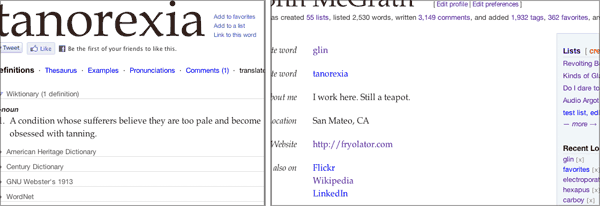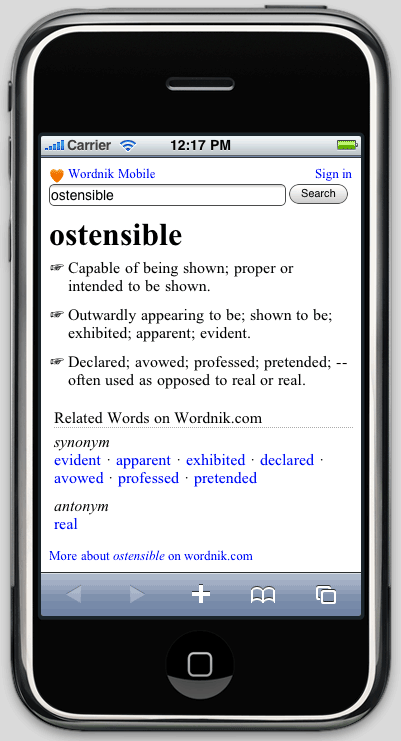Quick note: we’re moving the word-of-the-day and the list-of-the-day off the Wordnik blog. Soon they’ll be available via email (visit your profile page to sign up), but for now you can find them (and us!) on Facebook and Twitter. The word-of-the-day also has its own page.
Sometimes I am asked “How am I supposed to use Wordnik?” and I’m not sure what to answer. “However you want,” seems a little too passive, and “to find out how words work” seems too obvious. So I thought I’d write up a recent walk I took through Wordnik.
I started with Random Word, because, hey, who doesn’t like random? The first word I got was run-a-ball, which is some kind of cricket term. I know nothing about the game of cricket (and in fact have gone on record to speculate that cricket may be an elaborate hoax). I tagged it “cricket” anyway, despite my lack of knowledge of the game, because the sentences were pretty clear (and I can check it with Kumanan and Krishna, our resident Wordnik cricket aficionados, on Monday). After I tag something, I usually check to see what else has been tagged with the same tag, but again, I’m not that interested in cricket, so I decide to look at the cricket entry, instead.
The entry for cricket is pretty good (and the pictures are nicely divided between the bug and the game, and somebody’s adorable kitten and his toy cricket — the rule of Flickr images, given any fairly common word, you will find at least one picture of a cat at that word).
It’s in the related words that I had my first “ah-ha!” moment — one of the synonyms given for “cricket” is “stool.” Huh? I clicked through to the full Century Dictionary definitions set, and I’ll be damned, there it is:
A small, low stool; a footstool. A barrister is described [Autobiography of Roger North, p. 92] as “putting cases and mooting with the students that sat on and before the crickets.” This was circa 1680. N. and Q., 7th ser., IV. 224.
(“N. and Q.” is “Notes and Queries” and that quote is from an 1887 issue.) Then I got curious as to who Roger North was, and found out that he looks like this, and that his letters
give us a delightful picture of the private life of a man of high birth, great abilities, and extraordinary accomplishments, who, after a successful career at the Bar, retired in the prime of life to his country house, and devoted himself to improving his property and exercising an enlightening and elevating influence upon his tenantry and neighbours, while he continued to take a lively interest in all that was going on outside the immediate range of his daily occupations.
(I put his book on my “read someday” list, which list, at the rate it is growing, requires me to live to be 137 years old.)
Going back to Wordnik, I wondered (not being a connoisseur of stools) how many other stools there might be that I knew nothing about, so I clicked through to the main entry for stool and scrolled down to its related words — to find, among others, cutty-stool, whose second definition is:
A seat in old Scottish churches in which acknowledged female offenders against chastity were placed during three Sundays, and publicly rebuked by their minister.
And on that same page there was a Twitter account I didn’t know about — someone else besides DrSamuelJOHNSON is tweeting in the style of Samuel Johnson (if Samuel Johnson were a) alive and b) not inclined to think Twitter a snare and a diversion), 1755Dictionary. Interesting!
So that’s one way to use Wordnik — certainly not the only way, or the most efficient way! — but a fun one.
If you have taken a particularly interesting walk through Wordnik lately, feel free to tell us about it in the comments!




